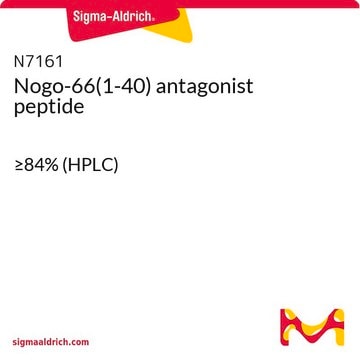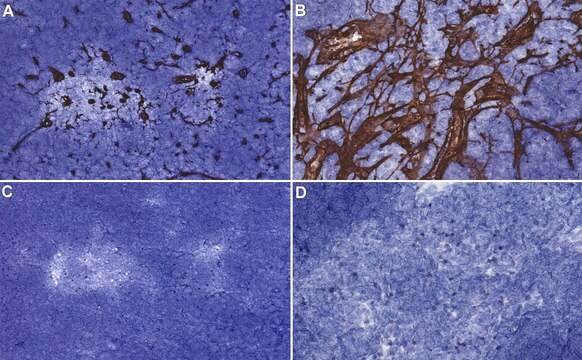MTOX1095
MRP5 Knockout Caco-2 Cells
human male colorectal tissue (Source Disease: colon adenocarcinoma)
About This Item
Prodotti consigliati
product name
MRP5 Knockout Caco-2 Cells, one vial
Origine biologica
human male colorectal tissue (Source Disease: colon adenocarcinoma )
Forma fisica
liquid
tecniche
drug transporter assay: suitable
permeability assay: suitable
applicazioni
ADME/TOX
Temperatura di conservazione
−196°C
Informazioni sul gene
human ... ABCC5(10057)
Descrizione generale
Applicazioni
Transporter Function in Caco-2 Cells with Targeted P-Glycoprotein, MRP2 and BCRP Gene Knockout Using Zinc Finger Nucleases
Comparison of Function and Relative Transporter Protein Concentrations in Caco-2 Cells with Single and Double Knockouts of the ABCB1, ABCG2, and ABCC2 Genes
Caco-2 Transporter Knockout Cell Based Assays
Caratteristiche e vantaggi
- A functional knockout of the MRP5 gene eliminates the reliance on chemical inhibitors to determine if a compound is an MRP5 substrate
- The vial format enables the MRP5 knockout cells to be included in standard drug transporter protocols
- Human assay with no interference from animal inhibitors
- Overcome the limitations of RNAi and knockdown cell lines that arise from remaining transporter functionality
Note legali
Esclusione di responsabilità
Codice della classe di stoccaggio
10 - Combustible liquids
Classe di pericolosità dell'acqua (WGK)
WGK 3
Punto d’infiammabilità (°F)
Not applicable
Punto d’infiammabilità (°C)
Not applicable
Certificati d'analisi (COA)
Cerca il Certificati d'analisi (COA) digitando il numero di lotto/batch corrispondente. I numeri di lotto o di batch sono stampati sull'etichetta dei prodotti dopo la parola ‘Lotto’ o ‘Batch’.
Possiedi già questo prodotto?
I documenti relativi ai prodotti acquistati recentemente sono disponibili nell’Archivio dei documenti.
Articoli
We presents an article on The Role of Intestinal Efflux Transporters In Drug Absorption.
Utilize these Caco-2 cell based assay tools for screening small molecule drug compounds prior to clinical studies and submission to regulatory agencies.
Il team dei nostri ricercatori vanta grande esperienza in tutte le aree della ricerca quali Life Science, scienza dei materiali, sintesi chimica, cromatografia, discipline analitiche, ecc..
Contatta l'Assistenza Tecnica.






